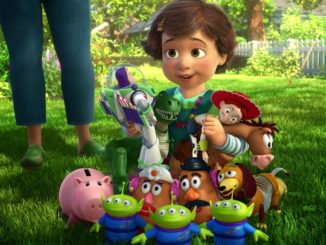
Terry Gilliam’s latest film, The Zero Theorem, is 107 minutes long. At least a half an hour of this could, and probably should, be extricated and replaced.
Christoph Waltz, Melanie Thierry, Matt Damon and David Thewlis star in the film with brief appearances from Tilda Swinton and Ben Whishaw. The film focuses on Qohen Leth, played by Waltz, who solves theoretical problems and who is convinced that his life is meaningless.
Leth’s conviction that all is nothing seems to make him ideal for solving The Zero Theorem, a project given to him by Management, an enigmatic character played by Damon. His convictions slowly wane, however, as Gilliam tries to evoke the import of relationships in a world full of people trying to be individuals.
Leth is not convinced of his own individuality and refers to himself as ‘we’, something which irks the characters he interacts with. In a somewhat lame method Gilliam uses this to evoke a recovery in Waltz as he eventually begins to refer to himself as ‘I’.
The film is full of these kinds of cop-outs, making it seem that Gilliam cannot devise a logical recovery from the depression that Leth suffers.
Leth’s existentialist struggles often feel drawn out. More time could have been spent developing the love story between him and Bainsley, a call-girl played by Melanie Thierry, rather than his struggles with The Zero Theorem, which feel repetitive by the end of the film.
On the positive side, Gilliam, who is known for creating dystopian landscapes in his films, makes the surroundings in The Zero Theorem so relevant to modern culture that it begs the question whether an outsider would see our world in the same way.
There are nods to hipster trends, intrusive advertising and unlikely religions all of which both satirise modern culture and forebode future calamities.
There are also times when Gilliam tries to portray the emptiness of modern culture and the effects it has on people like Leth. At other times, he shows us that emotion can be transmitted across miles, even via a computer screen.
Overall Gilliam has made a film with the seeds of some great ideas which, in some cases, failed to develop. Gilliam portrays dystopian landscapes well, but fails to develop real emotional connections in his characters, making the film slightly lop-sided and unimpressive.
3/5 stars
Bryan Grogan




Leave a Reply